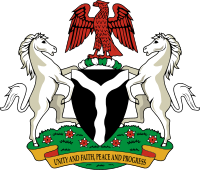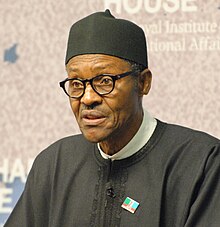
Nigerians, will you say, I'm proud to be a Nigerian?
The Federal Republic of Nigeria, commonly referred to as Nigeria is a federal constitutional republic in West Africa, bordering Benin in the west, Chad and Cameroon in the east, and Niger in the north. Its coast in the south lies on the Gulf of Guinea in the Atlantic Ocean. It comprises 36 states and the Federal Capital Territory, where the capital, Abuja is located. Nigeria is officially a democratic secular country.
Nigeria gained her independence on the first day of October 1960, and became a republic 1963.
This article is focused on the New Nigeria and its effect on Nigerians. Let's go back in time, do you remember when one pound was equivalent to one naira? do you remember when a liter of fuel was sold below sixty naira? do you remember when a cup of rice was sold for as low as ten naira?. Let's come now to reality, i mean presently, it's not all about the good past there are also something good about the present. Let's go back to the past, do you remember when a sim card was sold for more than eighty thousand naira? that should be more than the amount of some good mobile phones of today. But now you can get a sim card for as low as two hundred naira, Kudos to whoever made that possible.
Lets focus on the Nigeria we have been leaving in since the Olusegun Obasanjo regime after Nigeria regained democracy in 1999 till the present General Buhari administration which started in 2015.

Nigeria regained democracy in 1999 when it elected Olusegun Obasanjo, the former military head of state, as the new President of Nigeria. This ended almost 33 years of military rule (from 1966 until 1999), excluding the short-lived second republic (between 1979 and 1983) by military dictators who seized power in coups d'état and counter-coups during the Nigerian military juntas of 1966–1979 and 1983–1998. Although the elections which brought Obasanjo to power in 1999 and again in 2003 were condemned as unfree and unfair, Nigeria has shown marked improvements in attempts to tackle government corruption and to hasten development.
The administration led by Olusegun Obasanjo brought a remarkable development to Nigeria, it was during his administration as president of Nigeria that the G.S.M (Global System for Mobile communication) was brought into Nigeria, a very big Thank you to Olusegun Obasanjo for making that happen. During the olusegun obasanjo led administration as at 2000 a litre of fuel was sold below 60 naira, and during same administration a sim card was sold for above eighty thousand naira (80,000).The Olusegun Obansajo administration lasted from 1999-2003 (first tenure) and he re contested for a second tenure and he won then he ruled from 2003-2007(second tenure).
We are getting closer to the main idea of this article, that is, the new Nigeria and its effect on Nigerians. After the Olusegun Obasanjo led administration came the Umaru Musa Yar'Adua led administration and Ebele Goodluck Jonathan was the then vice president.He was declared the winner of the controversial Nigerian presidential election held on 21 April 2007, and was sworn in on 29 May 2007. Yar'Adua left for Saudi Arabia to receive treatment for pericarditis. He returned to Nigeria on 2 May 2010, where he died on the 5th. After his death the then vice president Good luck Jonathan became the acting president. He was President of Nigeria from 2010 to 2015.

The Good luck Ebele Jonathan led administration, was faced with challenges, there was issue of Boko Haram terrorist group, increase in fuel price, privatization of the electricity distribution company of Nigeria we had different views from citizens. Continuous increase of fuel price was observed at the end of the Jonathan led administration, and the Boko Haram insurgence was yet to be alleviated.

Then the current administration led by Muhammadu Buhari. In December 2014, he emerged as the presidential candidate of the All Progressives Congress for the March 2015 general elections. Buhari won the election, defeating the incumbent President Good luck Jonathan. This marked the first time in the history of Nigeria that an incumbent president lost to an opposition candidate in a general election. He was sworn in on 29 May 2015. His administration is still at an early stage, He has been on seat for less than a year, although this is enough time for there to be something to write home about. The current administration which is still faced with some similar issues faced by the last Good luck Jonathan administration, including the Boko Haram Insurgence and high fuel price, has been trying it's best to alleviate this issues. The Federal Government as at December 2015 announced that there will bw no more Boko Haram attacks, but said there might be occurrence of suicide bombing. The federal Government also announced as at December 2015 that from the first day of January 2016 fuel should be sold to the final consumer at 86.50 naira per litre (approximately 87 naira per liter), and till today the 9th day of January 2016 some marketers still sell the products at a price higher than 130 naira per liter. This administration is still trying to tackle some basic issues, let's see what the end of the administration will look like.
COMPARISON
Since the Olusegun Obasanjo led administration in 1999 till this current administraton led by Muhammadu Buhari who do you think has been the best serving president?
For me, Olusegun Obansajo regime has been the best administration yet since 1999. My reasons are; there were no cases of Boko Haram attacks then, Fuel wasn't sold above 130 naira then, the G.S.M came into Nigeria during his administration, etc.
Although each presidents had something to offer during their administration or will have something good to offer before then end of their administration.
What do you think?

0 Response to "NIGERIA as it was and as it is"
Post a Comment
We love to hear from you!
Sign in to comment "anonymously" without entering verification text.
Want to be notified when I reply your comment? Tick the "Notify Me" box.